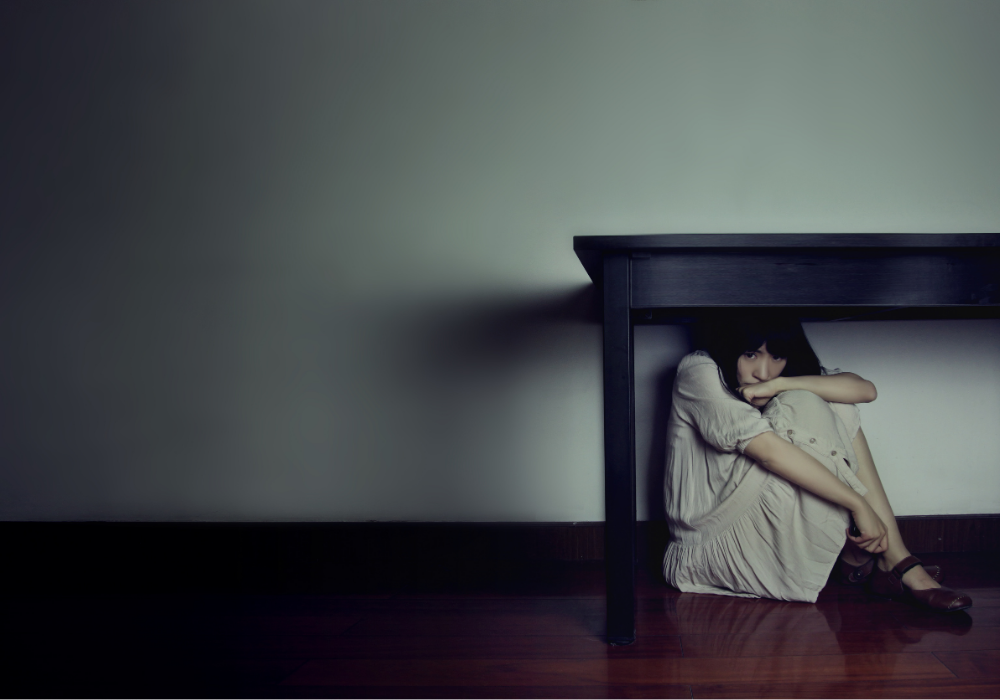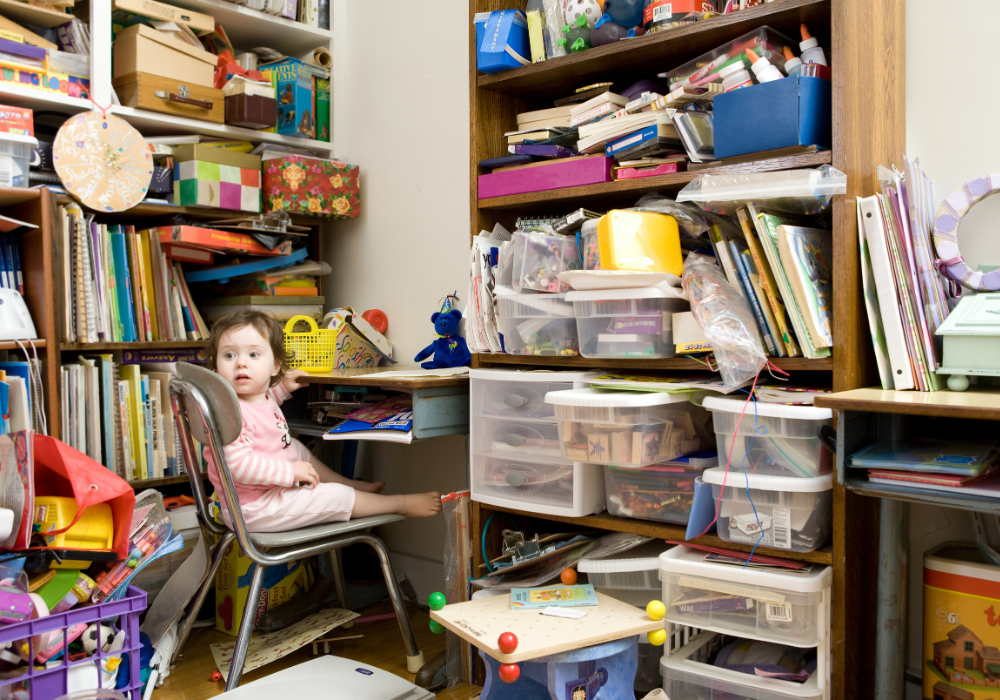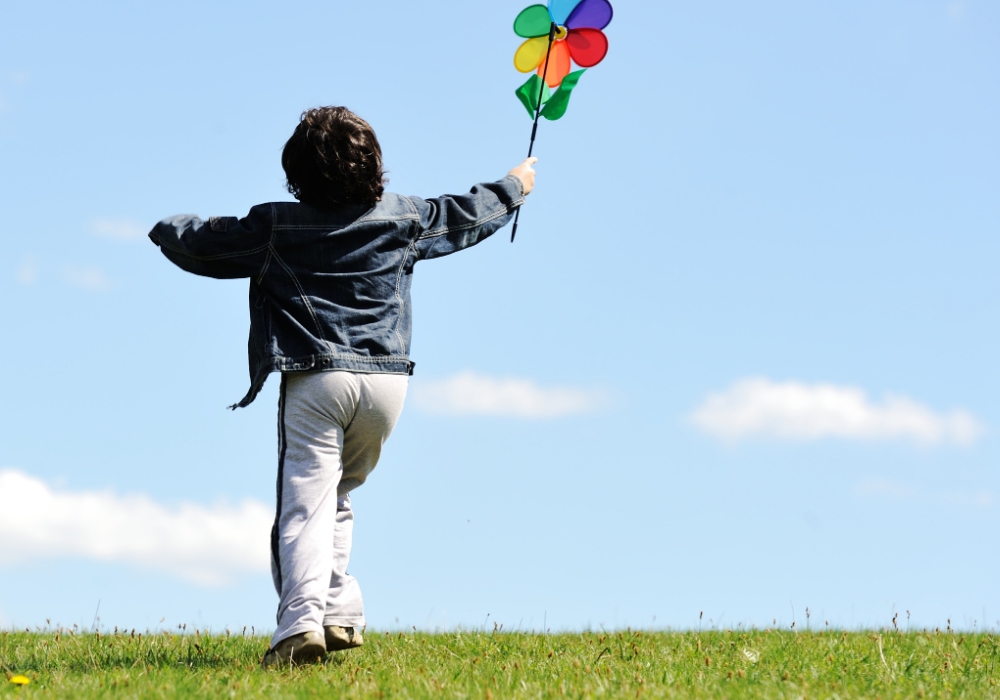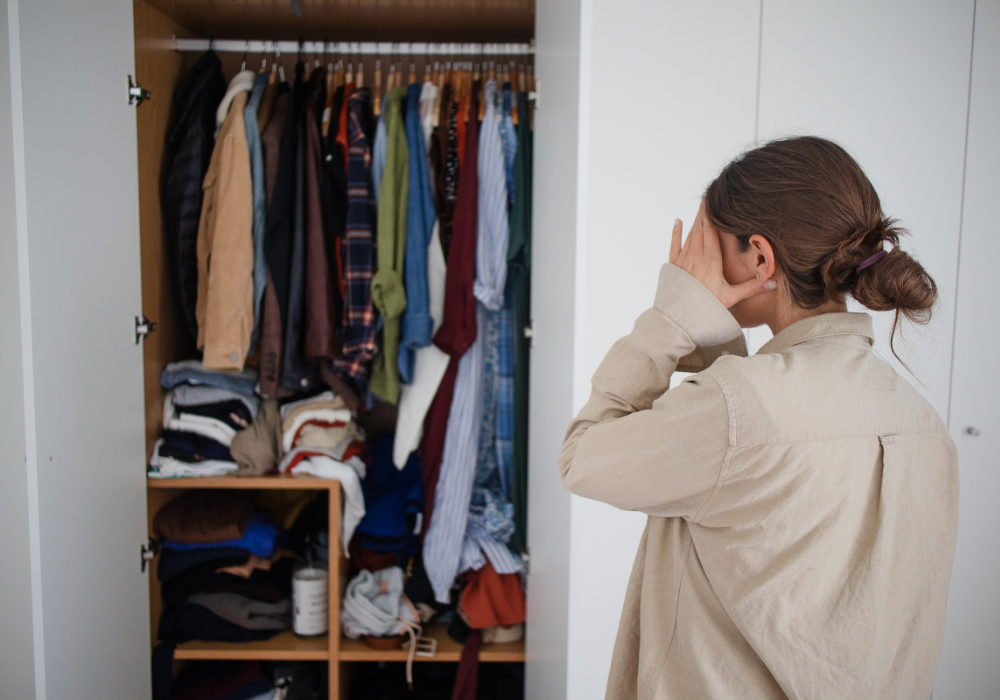Breaking the clutter trap: How emotional triggers keep you stuck.

Hoarding is more than just collecting things; it’s a psychological struggle that traps people in a cycle they can’t easily escape. For many, the items they hold on to represent something deeper than just clutter. They can symbolize security, identity, or even emotional survival. What starts as a small habit can grow into a complex issue, fueled by emotional and cognitive triggers. As the clutter accumulates, so does the difficulty of letting go, even when the space feels overrun.
This isn’t about cleaning up. It’s understanding the deeper forces that keep someone stuck in the cycle. Letting go is much harder than it seems when mental and emotional barriers are in the way. To break free requires addressing the psychological triggers that drive the accumulation. It’s not about clearing space. It’s about confronting the underlying reasons that prevent progress, making it harder to move forward and let go of what no longer serves a purpose.
1. Emotional attachment to possessions creates a false sense of security.

Certain possessions feel like anchors, providing comfort when life feels uncertain. These items become more than just things—they represent security, memories, and a sense of control. Letting go of them feels like losing part of yourself, and that’s what makes it so hard to declutter. These objects trick us into believing that they provide real security, even though they may only add to the mess. According to Christian Jarrett for The British Psychological Society, studies suggest that possessions often become extensions of the self, reflecting our identities and personal narratives.
The emotional connection to these items deepens as they pile up, creating an illusion of safety. Instead of offering comfort, the possessions only weigh us down, making it harder to let go. Each new item only reinforces the belief that more is better, leaving us overwhelmed by what we’ve accumulated.
2. A fear of making the wrong decision traps people in indecision.

It’s easy to avoid making decisions about what to keep and what to toss because the fear of making the wrong choice looms large. Every item feels like a potential mistake just waiting to happen. This hesitation leads to inaction, where nothing gets thrown away, and everything piles up instead. Avoiding tough choices only makes the clutter grow. Psychological research indicates that delaying decisions about clutter can lead to increased anxiety and stress, making the task seem more overwhelming over time.
As more time passes, the anxiety around these decisions grows. The longer you wait to tackle the clutter, the more overwhelming it becomes. The fear of regret traps you in a loop of indecision, and the thought of making the wrong choice keeps you from clearing anything out. The more you delay, the bigger the problem becomes.
3. Compulsive buying offers a quick lift but leaves you with more clutter.

Buying something new often offers a quick emotional lift. That moment of excitement can feel like a temporary escape, making you feel better about things. Whether it’s a small item or something bigger, the emotional boost from purchasing can be satisfying—until it fades away, leaving you with more clutter and the realization that it didn’t truly fix anything. This pattern aligns with the concept of the hedonic treadmill, where individuals continually seek new acquisitions to maintain a certain level of happiness, only to return to their baseline emotional state over time.
The cycle continues as you chase that same high from each new purchase. The satisfaction quickly diminishes, and before you know it, you’re buying again to fill the emotional gap. That temporary fix keeps you in a loop of buying things, accumulating more than you need, and never quite feeling fulfilled by it.
4. Trying to feel “prepared” leads to over accumulating unnecessary items.

There’s something comforting about thinking that more stuff equals being better prepared for life’s surprises. It’s easy to keep items with the hope that they’ll come in handy someday, even if it’s unlikely.
While it may seem logical, the reality is that most of these things never get used. Instead of feeling more ready, you just end up with more to manage. Over time, this need to be “prepared” turns into a mountain of things that serve no purpose. The more you accumulate, the more overwhelming it becomes to deal with. Holding onto things “just in case” doesn’t provide the security you expect, but only adds to the stress of living in a cluttered space.
5. Shame and guilt prevent people from seeking help.

The emotional weight of clutter often feels too embarrassing to share with others. The shame of having too much stuff leads to hiding it, thinking that people will judge you for it. This sense of guilt makes it hard to ask for help, leaving you feeling isolated. Rather than reaching out, you keep the mess to yourself, thinking you can handle it alone.
That guilt builds over time, making it even harder to confront the issue. The longer you wait to address the clutter, the more overwhelming it becomes. The fear of judgment keeps you trapped in a cycle of hiding and avoiding, and the clutter only continues to pile up.
6. Perfectionism makes it difficult to let go of items.

Striving for perfection can make decluttering feel like an impossible task. If things aren’t sorted in exactly the right way, it seems easier to just hold on to them. The obsession with getting everything “perfect” keeps you stuck, unable to make any real progress. Instead of getting started, you wait for the perfect moment or method, which never comes. This constant focus on perfection only adds to the overwhelm.
What should be a simple process becomes a stressful project that feels too big to tackle. The more you try to perfect the process, the more clutter builds up. Instead of clearing things out, you get stuck in a cycle of never feeling “ready” to begin.
7. The sunk cost fallacy convinces you to keep things you no longer need.

It’s easy to hold on to things when you’ve invested time, money, or energy into them. The thought of throwing something away feels like you’re letting go of all the effort you put in. Even when it’s clear that an item has no real use, the emotional weight of that investment keeps you holding on. The more you accumulate, the harder it becomes to let go of anything, because every item feels like part of a larger, unfulfilled commitment.
That mindset creates a never-ending cycle. What seemed like a smart decision at the time now becomes a reason to keep more than you need. As each new item gets added, the pressure to keep everything increases. The collection grows, but the attachment only makes it more difficult to part with things that have outlived their usefulness.
8. Collecting gives you a false sense of control over life’s chaos.

In a world full of uncertainty, holding on to things can feel like the one thing you can control. Every new item gives the illusion of stability and a way to create order. It’s a method of asserting control over an otherwise chaotic environment, and that sense of control becomes addictive. The more possessions you gather, the more you feel like you’re managing life’s unpredictability, even if it’s just in your own space. Over time, that sense of control gets replaced by an overwhelming feeling of being trapped by your own stuff.
The clutter that once seemed like a source of comfort starts to feel suffocating. The belief that more possessions lead to more control only adds to the chaos, making it harder to clear things out and regain balance.
9. Childhood experiences drive the urge to hold onto things.

When emotional needs from childhood are left unmet, the urge to accumulate things often takes root. Things become a way to fill that void, a way to cope with the lack of emotional support or material stability that might have been missing earlier in life. Every item collected serves as a substitute for the feelings of security that were lacking. The objects aren’t just things; they represent the comfort and protection that was never fully realized.
As the collection grows, the emotional attachment deepens. The belief that having more things equates to feeling more secure becomes more ingrained. Letting go of these objects feels like letting go of part of what defined their sense of self. This attachment creates a barrier to moving forward, and each possession reinforces the emotional need it’s tied to, making it harder to break free from the cycle.
10. Fear of losing memories makes it hard to part with sentimental items.

Sentimental items are often viewed as physical reminders of cherished moments. Whether it’s a photograph, a letter, or an old keepsake, these objects hold deep meaning and represent memories that can’t be replaced. The emotional connection to these items makes it hard to part with them, as they feel like a part of the past that should be preserved.
Eventually, though, the growing pile of sentimental items makes it harder to connect with the memories they represent. Instead of preserving the past, the clutter ends up blocking it. Each additional item adds to the weight, making it more challenging to move forward and release what no longer serves a purpose.
11. An overestimation of the potential value of items encourages accumulation.

Holding on to things with the hope that they’ll eventually become valuable is a common reason people justify keeping them. Whether it’s an old book, a broken appliance, or an item with sentimental value, the belief that it might be useful or worth something someday keeps the collection growing. This mindset makes it difficult to part with anything, as the hope of future payoff fuels the accumulation.
Most of these items will never actually be used or appreciated, though. They end up taking up space without serving a purpose. Despite this, the belief that they might be valuable one day makes it hard to let go. With each item added, the cycle continues, and the more things are kept, the harder it becomes to clear them out.
12. Your possessions become a reflection of your identity.

Items we collect often reflect who we are, and for some, those possessions become an extension of their identity. They act as markers of self-worth, showcasing personal values, interests, and accomplishments. These belongings are woven into one’s sense of self, making it feel like part of who they are.
Letting go of them seems like losing a piece of themselves, which makes it incredibly difficult to part with anything. Emotional attachment to these objects strengthens over time. What once were just items evolve into key pieces of personal identity. Losing them feels like losing a part of who they are, deepening the fear of letting go.
This attachment reinforces the cycle, where each new possession feels like an essential reflection of personal value. As more items are added, they become even more intertwined with one’s self-worth, making it harder to clear the clutter.
13. A sense of helplessness and lack of control perpetuates the cycle of hoarding.

When life feels out of control, accumulating things can seem like a way to regain power. Each item collected becomes an attempt to assert some control over a situation that feels chaotic or unpredictable. Holding onto things gives a sense of security, even though it’s an illusion. The more possessions are gathered, the more it seems like life can be managed, even if only in the space they control.
But as the collection grows, so does the feeling of being trapped. What started as a way to regain control becomes a source of overwhelming stress. Instead of feeling empowered, the weight of all the items creates a sense of helplessness. The belief that accumulating things offers control only deepens the feeling of being stuck in the cycle, making it harder to break free and regain balance.
